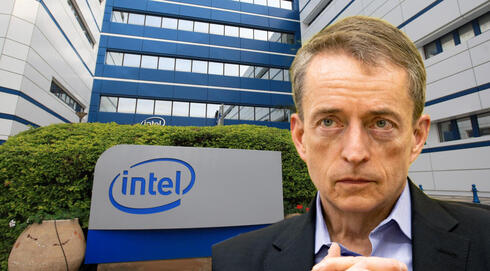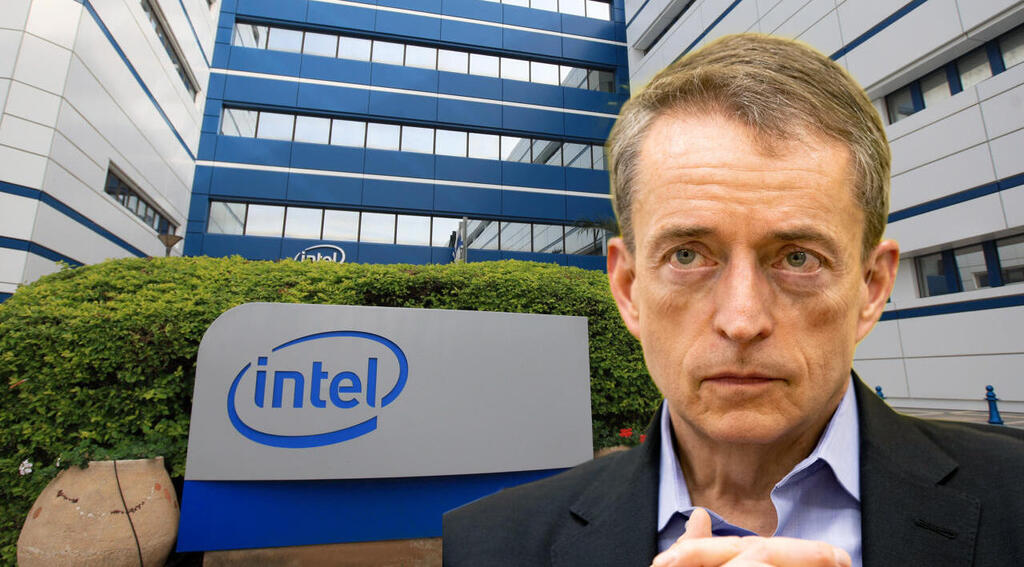
Analysis
With massive investment, Intel reaffirms confidence in Israel
The chip giant approved the conditions for a huge investment in a new factory in Kiryat Gat and will receive an increased grant of $3.2 billion, or 12.8% of the total cost. Intel also committed to buy 60 billion shekels ($16.6 billion) worth of goods and services from Israeli suppliers over the next decade and the corporate tax it will pay will increase from 5% to 7.5%
Intel will increase its planned investment in the establishment of a new chip factory in Kiryat Gat by $15 billion, and is expected to invest $25 billion in total in its construction, the chip giant confirmed on Tuesday. This is after the Ministries of Treasury, Economy and Industry, including the Tax Authority and the Directorate of the Investment Authority, approved the terms of the investment this week.
At the same time, the chipmaker also committed to buy 60 billion shekels ($16.6 billion) worth of goods and services from Israeli suppliers over the next decade. As part of the agreement with the Israeli government, Intel will receive a grant in the amount of $3.2 billion, which will be spread over several years. As part of the investment agreement, the corporate tax that Intel will pay will increase from 5% to 7.5%. This is an achievement from the point of view of the ministries of finance and economy, since Intel exports from Israel a significant amount of $8.7 billion a year, which is 5.5% of all Israeli high-tech exports.
Israel plays a strategic role in Intel's long-term work plan, both as a development center for the company's most advanced computer processors and as its production center. The new plant that will be built is part of the significant strategic move led by the CEO, Pat Gelsinger: to turn Intel from a company that manufactures chips that it designed and developed only on its own, to a provider of chip production services for other companies such as Nvidia and Apple. The new plant is expected to join a series of factories that the company is establishing , mainly in the USA, in order to provide these services. The plant is expected to start operating within four to five years, and will include chip manufacturing using innovative ultraviolet (EUV) lithography technology.
Incorporating the most advanced technologies
In previous investments in recent years, the incentives received by Intel were at most 10% of the total investment itself. This time, the grant stands at $3.2 billion, or 12.8% of the total investment. Only in 2005 did Intel receive a higher relative incentive. This comes despite Israel already provening itself both as a significant production center for Intel and as a global knowledge center in the development of chips not only for Intel but for all the major players in the field, including Nvidia, Qualcomm and Apple. These, in theory, should have made Israel more attractive and at least maintained the same rate of incentives in relation to investment.
So why is the state paying Intel a larger percentage this time? There are several possible reasons. The war in Gaza is actually not one of them - the framework agreement with Intel was already concluded in the summer. But it is possible that the policies led by the current government contributed to this. The political crisis created by the judicial reform also had substantial economic consequences, which were felt, among other things, in the form of an increase in the dollar exchange rate and a decrease in the volume of high-tech investments during the first half of 2023. It is possible that the government and the Ministry of Finance were, therefore, more desperate to claim significant economic achievements, such as a huge investment from Intel, and therefore were more willing to accept the company's demands for increased incentives. At the very least it can be said that the problematic situation in which Israel found itself at the beginning of the summer did not contribute to its position in the negotiations with Intel.
Another relevant factor is the type of investment. In contrast to the investments from 2011, 2014 and 2018, which were focused on the expansion and upgrading of existing factories, this time it is about establishing a completely new factory, the first new factory that Intel has established in Israel since 2005. This factory is expected to use the most advanced technologies around - some of which are not yet in use in existing factories. Such a new plant brings not only a significant jump in terms of employment, much more than the expansion of a plant, but also in its quality. It brings knowledge and technologies to Israel, and will cultivate a new generation of engineers with the ability to work with the most advanced developments in the field. It is difficult to put a price on such knowledge and capabilities, but it is very possible that they are worth the increased incentives that Intel received, and that in a few years will make their way back to the treasury in the form of taxes collected from higher salaries and exits.
The 60 billion shekels that Intel is expected to spend in Israel in the form of purchases from local suppliers will cover all the needs related to the operation of the plant. From resources needed to carry out the production operations themselves, such as chemicals, energy, water and raw materials needed to build the factory and produce the chips, to everyday things such as office equipment, furniture, professionals such as carpenters or electricians, and of course also catering and cleaning services. Intel strives, as much as possible, to purchase everything needed to operate the factory from Israeli suppliers.
A combination of the worlds of design and production
These days Intel is celebrating 50 years of activity in Israel. The company, which started with five employees, currently directly employs about 12,000 people, and is considered the largest private employer in Israel. In a conversation with Calcalist, Daniel Benatar, Co-General Manager of Intel Worldwide Semiconductor Manufacturing, and Co-General Manager Intel Israel, explained that the new plant will be able to produce the most advanced chips and meet the needs of companies like Apple and Nvidia. "The plant supports the new strategy to produce products for both Intel and essential customers, and it will be part of the continuous supply chain that Intel is building for very advanced chips. Israel is a very central part of this issue," he said.
According to Benatar, Intel has a significant commitment to Israel, unaffected by the current war. "Just a week ago, CEO Pat Gelsinger was interviewed in the U.S. and said that the war had no effect, especially considering Intel's significant and long presence in Israel," he said. "We are saddened by what happened, but it has no effect on our investment. On the contrary, it is Intel's global expression of confidence in Israel and Intel Israel. It is a commitment based on a long-standing friendship."
Benatar also referred to the unique status of Israel for Intel, the only country outside the U.S. where the company has both development and strategic production activities: "There is something special here in the State of Israel. Leading universities in the world, people with motivation for enormous success, audacity, and Israeli creativity. You combine all these things, and it brings success stories both in the world of design and in the world of production."
Meirav Ben-Hamu Krief was appointed as the head of the new factory. She has a bachelor's degree in chemical engineering and a master's degree in business administration, both from Ben Gurion University, and started working at Intel during her undergraduate studies. At the beginning of her career, she worked in the engineering department, from where she moved to a variety of positions.














